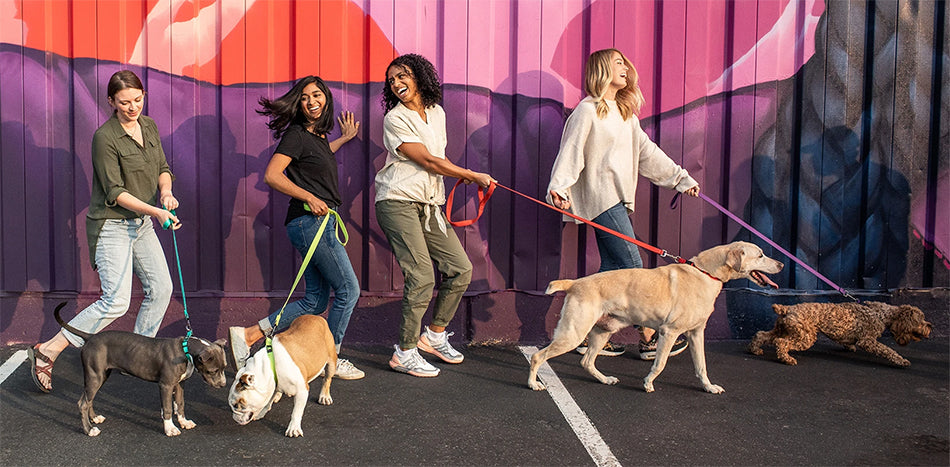Your cart is empty. Let's fix that!


This post is written by our holistic veterinarian at "I and love and you", Dr. Angie Krause, DVM, CVA, CCRT
Taking care of your dog’s teeth is one of the most impactful ways to keep them healthy. Unfortunately, many dogs have painful dental disease and never show any symptoms or stop eating. Even worse, untreated dental disease can cause problems in other organs such as the heart, lungs, liver, and kidneys. That’s why a holistic approach to your pet’s health should always include good dental hygiene.
It takes 48 hours for tartar to bond to your pup’s teeth. If possible, you should be brushing their teeth every day or every other day at a minimum. Depending on your lifestyle, or your dog’s commitment to fresh breath, daily brushing can be challenging. If you can’t brush your dog’s teeth regularly, don’t ignore them completely! Getting a thorough look in your dog’s mouth once a week can detect painful dental diseases such as cracks, fractures and abscesses.
You can use a dog-specific toothbrush or you can use a toddler or infant toothbrush. Dog specific toothpaste isn’t necessary but can be tasty for your pup. You can skip toothpaste or use a natural alternative like coconut oil. Avoid human toothpaste as they often contain artificial sweeteners that are toxic to dogs.
Use circular motions to brush the outside of the teeth on both the upper teeth and lower teeth. Pay special attention to the upper premolars and molars in the back.
While raw bones may provide some tartar and plaque removal, they can also cause tooth injury. The most common injury is a slab fracture to the upper premolars. These can be painful and when left untreated can cause a root abscess. This is why checking your dog’s teeth on a regular basis (even if you are not brushing) can be beneficial.
If you do choose to give your dog bones, avoid cooked bones. Cooked bones splinter, which have the potential of damaging or blocking your pup’s gastrointestinal tract.
The safest treats for your pup are ones that are softer than the enamel of their teeth. The Fresh All Rover Bones are an excellent option.
I love toys like Kongs or Toppls, because they combine play and meal time with mental stimulation. You can check out my favorite recipes here.
If your dog already has dental disease, like tartar build-up, fractured or dead teeth, start by not shaming yourself! Some breeds are predisposed to dental disease. Other dogs just have bad oral genetics.
For dental disease to be fully treated, a dental procedure and full mouth radiographs should be performed under general anesthesia. General anesthesia is generally very safe, and performing the procedure early will reduce anesthesia time in the future. If you are concerned about anesthesia, you can read more about how to keep your dog safe here.
I do not recommend anesthesia-free cleanings. These are merely cosmetic and because you cannot assess teeth below the gum line this way, many pups who receive these cleanings will continue to live with painful dental disease.
There are so many ways you can stay proactive with your dog’s dental health! What questions did I not answer? Let’s start a conversation, just leave a comment below!
Big hugs,
Dr. Angie